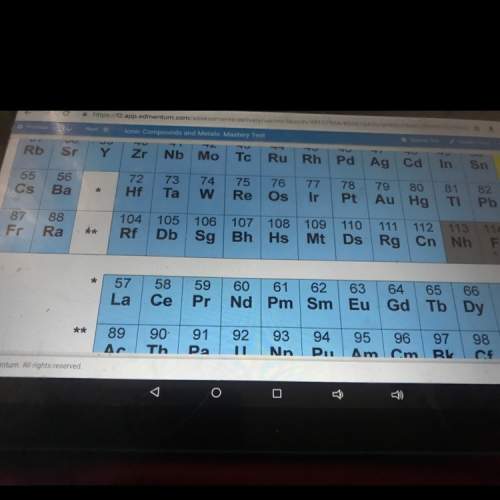
Chemistry, 12.11.2020 19:10 angelasan16
A carbocation is an example of a(an) . Does a carbocation accept a pair of electrons, or does it donate a pair of electrons?
A. Electrophile. The carbocation accepts a pair of electrons.
B. Nucleophile. The carbocation accepts a pair of electrons.
C. Electrophile. The carbocation donates a pair of electrons.
D. Nucleophile. The carbocation donates a pair of electrons.

Answers: 1


Other questions on the subject: Chemistry


Chemistry, 22.06.2019 20:10, jakhunter354
The lattice enthalpy (formation of ionic solid from ions in the gas phase) for agcl(s) is -916 kj/mol and the hydration enthalpy (dissolution of gaseous ions into water) is -850 kj/mol. how much heat (in joules) is involved in forming 1l of saturated agcl solution (1.8 × 10-4 g / 100 ml water) by dissolving agcl(s)? assume solution volume does not change much upon dissolution. the equations are given below. ag+(g) + cl−(g) æ agcl(s)
Answers: 3

Chemistry, 22.06.2019 23:00, poolwaterisgross
How does the value of the equilibrium constant show that a reaction reaches equilibrium very quickly? (a) the equilibrium constant is large. (b) the equilibrium constant is small. (c) the equilibrium constant is zero. (d) the value of the equilibrium constant does not show how quickly a reaction comes to equilibrium.
Answers: 1
You know the right answer?
A carbocation is an example of a(an) . Does a carbocation accept a pair of electrons, or does it don...
Questions in other subjects:







Mathematics, 22.09.2019 21:30


Biology, 22.09.2019 21:30

Mathematics, 22.09.2019 21:30




